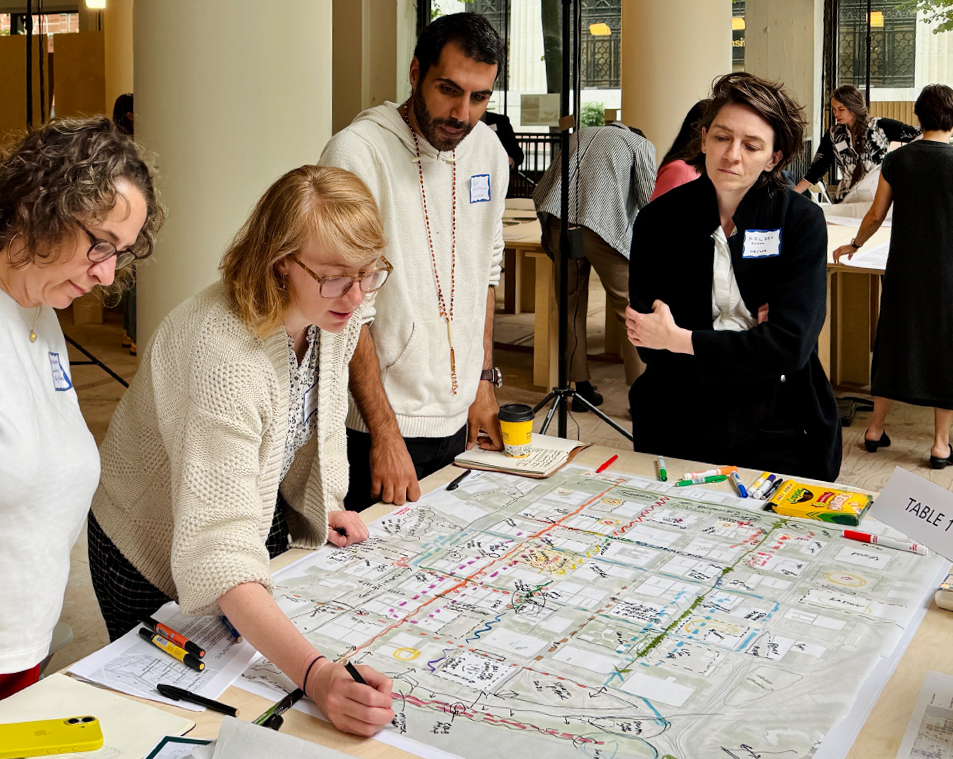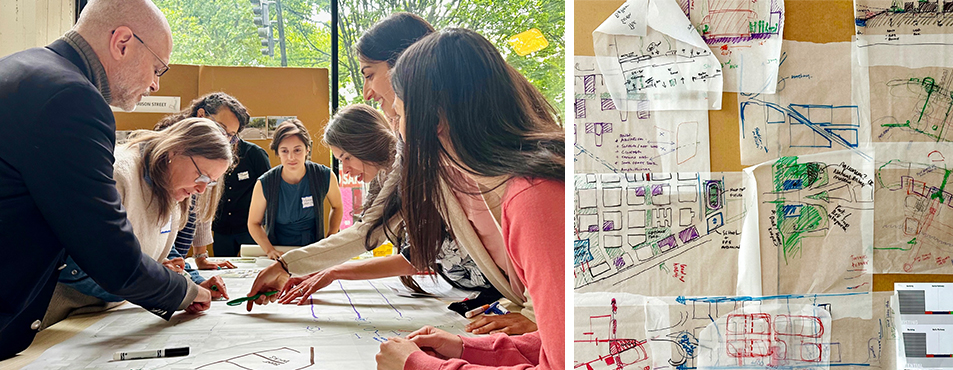Building on the momentum of this spring’s Streets of Possibility event, I helped organize a workshop on June 13 to brainstorm tangible ideas for the future of downtown Portland, Oregon. Nearly 40 urban designers and creative thinkers gathered with tracing paper, markers and optimism — ready to reimagine downtown’s street network and its connections to the Willamette riverfront.

As one of the event organizers, I designed maps and created prompts to spark ideas and nudge the creative process. We asked big questions and proposed bold ideas: Why not this? What about that? Could it look like this? The ideas flowed as freely as our markers until late afternoon.
Downtown Portland is undergoing transformation. It won’t return to what it was, nor should it. Our challenge, rather, is to help shape what it will become. Over 40% of downtown Portland’s land lies in the public realm of streets. Waterfront Park is an enormous, underutilized asset most of the year with untapped potential for connection, culture and community. This exercise helped us envision downtown as one of Portland’s neighborhoods — more than a place to just work or visit; a place to stay, play and simply be.

Real change requires action. Coming together to share ideas and see new perspectives is critical to our city’s path forward. Thank you to Randy Gragg and Will Smith of the PDX Design Collaborative for opening the doors of the JK Gill Building to host the workshop and the designers who showed up eager to sketch, discuss and push each other to think bigger and more inclusively.
The day wrapped up with a happy hour open to the broader community and even more voices contributed to the dialogue. One seasoned participant remarked, “This is the way we used to do it” — a compliment that reminded us we’re returning to a civic culture where urban design is visionary, not reactive. Follow-up conversations are happening, and we’ll share a summary of the workshop to ensure the thinking can live on and inspire action at all levels. We invite everyone — elected leaders, civic organizations, business owners, residents — to keep imagining. Because Portland’s next chapter is unwritten, and together, we can shape it.
